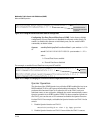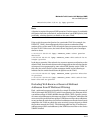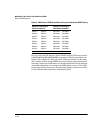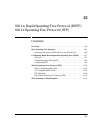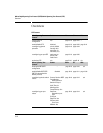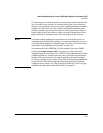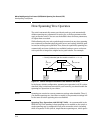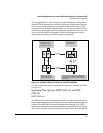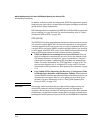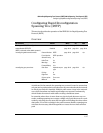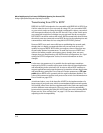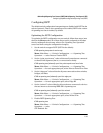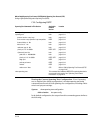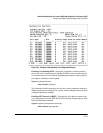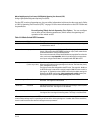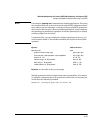
802.1w Rapid Spanning Tree Protocol (RSTP) 802.1d Spanning Tree Protocol (STP)
How Spanning Tree Operates
In addition to faster network reconfiguration, RSTP also implements greater
ranges for port path costs to accommodate the higher and higher connection
speeds that are being implemented.
RSTP is designed to be compatible with IEEE 802.1d STP, and HP recommends
that you employ it in your network. For more information, refer to
“Transi-
tioning from STP to RSTP” on page 13-8.
STP (802.1d)
The IEEE 802.1d version of spanning tree has been in wide use and can coexist
in a network in which RSTP (802.1w) has been introduced. if your network
currently uses 802.1d STP and you are not yet ready to implement RSTP, you
can apply STP to the Series 5300XL switches until such time as you are ready
to move ahead with RSTP. STP on the Series 5300XL switches offers the full
range of STP features found in earlier product releases, including:
STP Fast Mode for Overcoming Server Access Failures: If an end
node is configured to automatically access a server, the duration of the
STP startup sequence can result in a “server access failure”. On ports
where this is a problem, configuring STP Fast Mode can eliminate the
failure. For more information, see “STP Fast Mode” on page
13-26. The
next sections describe how to configure STP on the switch. For more
information on STP operation, see
“How Spanning Tree Operates” on page
13-4.
Fast-Uplink STP for Improving the Recovery (Convergence) Time
in Wiring Closet Switches with Redundant Uplinks: This means that
a Series 5300XL switch having redundant links toward the root device can
decrease the convergence time to a new uplink port to as little as ten
seconds. For more information, refer to
“Fast-Uplink Spanning Tree
Protocol (STP)” on page 13-27.
Caution Because the switch automatically gives faster links a higher priority, the
default STP parameter settings are usually adequate for spanning tree
operation. Also because incorrect STP settings can adversely affect network
performance, you should not make changes unless you have a strong under-
standing of how STP operates. For more on STP, see the IEEE 802.1D standard.
13-6



